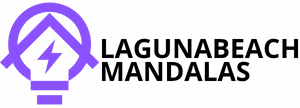Imagine turning your cozy home into a money-making machine while still enjoying your favorite Netflix series. That’s the magic of seasonal house hacking! As the seasons change, so do opportunities to cash in on your space. Whether it’s renting out a spare room during summer vacations or transforming your basement into a winter wonderland retreat, the possibilities are endless.
Table of Contents
ToggleUnderstanding Seasonal House Hacking
Seasonal house hacking involves leveraging property to generate income during specific times of the year. Homeowners can maximize their space by renting it out when demand peaks.
What Is Seasonal House Hacking?
Seasonal house hacking refers to the practice of renting out parts of a home, such as spare rooms or vacation properties, during peak seasons. Homeowners capitalize on the influx of tourists or visitors by offering short-term accommodations. This strategy allows individuals to turn their underutilized spaces into revenue-generating assets. Seasonal house hacking can vary between summer beach rentals, winter ski lodges, or fall leaf-viewing retreats. Each season presents unique opportunities for homeowners to profit from their living arrangements.
Benefits of Seasonal House Hacking
Generating extra income ranks as one major benefit of seasonal house hacking. Homeowners increase cash flow by renting out space during peak travel times. Flexibility comes next, as homeowners can choose when to rent their properties or host guests. Increased property value also occurs, with well-maintained rental spaces attracting higher offers. This approach fosters community engagement, allowing homeowners to meet different people throughout the year. Ultimately, seasonal house hacking enhances lifestyle while optimizing property investment.
Popular Seasonal House Hacking Strategies
Seasonal house hacking offers various strategies for monetizing space efficiently. Homeowners can optimize their properties according to seasonal demands.
Renting Out a Room
Renting out a room during peak tourist seasons generates significant income. Many homeowners find extra cash by advertising on platforms like Airbnb or VRBO. Extra privacy and comfort attract travelers looking for home-like accommodations. Seasonal events or local attractions prompt increased demand, particularly in summer or winter. Successful hosts often furnish rooms attractively and provide essential amenities to enhance guest experiences. Clear communication with guests before and during their stay fosters positive reviews, leading to repeat bookings.
Short-Term Rentals
Short-term rentals prove lucrative in vacation hotspots or bustling city areas. Homeowners turn their properties into seasonal getaways, catering to specific holiday trends. Winter ski lodges and summer beach retreats often command premium rates during holidays. Keeping rental calendars updated is crucial for maximizing occupancy. Engaging with local businesses can promote guest experiences, offering discounts or recommendations. Offering flexible booking options helps attract a broader audience. Seasonal adjustments to pricing based on demand ensure competitiveness within the market.
Choosing the Right Location for Seasonal House Hacking
Selecting an optimal location is crucial for successful seasonal house hacking. Strategic choices can significantly enhance income potential and guest experience.
Key Factors to Consider
Accessibility plays a vital role in attracting renters. Proximity to major attractions or transportation hubs increases appeal. Local amenities such as restaurants, shops, and entertainment options contribute to guest satisfaction. Seasonal demand impacts price and occupancy rates; understanding high-demand periods ensures maximum profit. Zoning regulations are essential to check, as they can restrict short-term rentals. Market trends inform homeowners about competitive pricing and local rental demands.
Popular Locations for Seasonal Rentals
Beachfront properties remain a favorite during summer months, drawing families seeking vacation spots. Mountain regions see high interest during winter for skiing enthusiasts. Urban areas thrive year-round due to business travelers and tourists alike. National parks attract nature lovers in fall for leaf-viewing experiences. Festivals and events can drive temporary demand in cities, so homeowners should capitalize on these opportunities. Overall location selection depends on target audience and seasonal peak influences.
Preparing Your Home for Seasonal House Hacking
Seasonal house hacking requires careful preparation to maximize profitability and guest satisfaction. Focus on creating an inviting and functional space that appeals to potential renters.
Home Improvements
Enhancing your home’s appeal increases rental attractiveness. Consider refreshing paint colors or updating fixtures to create a modern look. Investing in quality furniture can elevate comfort. Upgrading outdoor spaces makes a significant impact; think about adding or improving patios and gardens. Installing smart home technology simplifies guest management, making it easier to access rentals. Providing essential amenities, such as kitchen supplies and Wi-Fi, ensures guests feel at home. Prioritize cleanliness and maintenance to attract repeat visitors; cleanliness significantly influences guest reviews and satisfaction.
Setting Up Listings
Creating effective listings plays a crucial role in attracting potential renters. Use high-quality photographs to showcase your property’s best features, capturing both interiors and exteriors. Write detailed descriptions that highlight unique qualities, focusing on seasonal activities nearby. Using compelling titles and keywords improves visibility in search results. Set competitive pricing by researching local rental rates, adjusting based on demand fluctuations. Responding promptly to inquiries fosters positive guest impressions, enhancing the likelihood of bookings. Promote your listings on multiple platforms, like Airbnb, VRBO, and local rental sites, to reach a broader audience.
Financial Considerations
Seasonal house hacking offers various financial implications homeowners should consider. Generating additional income significantly impacts budgeting flexibility and savings. Potential earnings directly correlate with seasonal demand; peak times attract higher rental rates. For instance, properties near beaches often see substantial revenue in summer months, while ski lodges thrive in winter.
Expense management is equally important. Homeowners face initial costs for upgrades and maintenance; smart investments enhance property appeal and guest satisfaction. Essential expenses can include marketing, cleaning services, and utility bills, which homeowners must factor into their calculations. Maintaining a detailed budget ensures clarity in profits versus costs.
Tax considerations come into play as well. Seasonal rentals may qualify for specific tax deductions, such as depreciation, necessary repairs, and property management fees. Understanding IRS guidelines on rental income helps optimize tax benefits. Engaging a tax professional could provide insight into maximizing deductions.
Assessing local market trends remains crucial for pricing strategies. Competitive analysis ensures homeowners set rates that attract renters without undervaluing their property. Tracking similar listings in the area allows them to adjust prices based on demand fluctuations, ensuring profitability throughout the year.
Lastly, homeowners need to explore financing options. Creative financing methods, such as shared ownership or investment partnerships, can mitigate upfront costs. Homeowners could consider using home equity loans to fund property improvements, thus improving earning potential. Pursuing these financial considerations provides a clear roadmap for successful seasonal house hacking.
Legal Aspects of Seasonal House Hacking
Understanding legal considerations is vital in seasonal house hacking. Local laws often dictate rental activities, including short-term rentals. Check zoning regulations to ensure compliance before listing a property. Some jurisdictions require specific permits or licenses for renting.
Homeowners face taxation on rental income. They must report earnings to the IRS, which includes detailed records of expenses related to property management. Claiming expenses like maintenance and cleaning services becomes essential to reduce taxable income. Consulting a tax professional can clarify deductions available for short-term rentals.
Liability insurance plays a crucial role. Standard homeowner policies might not cover damages related to short-term tenants. Opting for a specialized short-term rental insurance policy offers protection against potential claims. Ensuring adequate coverage protects both the property and the homeowner.
Tenant rights also come into play. Familiarity with local landlord-tenant laws helps avoid legal disputes. Before signing rental agreements, property owners should clearly outline terms, including security deposits and house rules. This transparency fosters a positive relationship with guests.
Regulations can change based on seasonal demands. Regularly reviewing local laws keeps homeowners informed. Participating in local real estate groups can provide current insights on regulatory changes.
Additionally, listing platforms often have their own set of requirements. Adhering to these standards can maximize visibility and bookings. Many platforms also offer tools to streamline compliance with local regulations, making it easier for homeowners.
Integrating these legal aspects into seasonal house hacking strategies ensures profitability while minimizing risks.
Seasonal house hacking presents a unique opportunity for homeowners to transform their properties into profitable assets. By tapping into seasonal demand and optimizing living spaces, they can generate significant income while enhancing their lifestyle.
With the right strategies in place such as effective marketing and property preparation, homeowners can attract guests and ensure positive experiences. Understanding local regulations and financial implications is crucial for maximizing benefits and minimizing risks.
Embracing seasonal house hacking not only boosts income but also fosters community connections, making it a rewarding venture for those ready to take advantage of their home’s potential.




